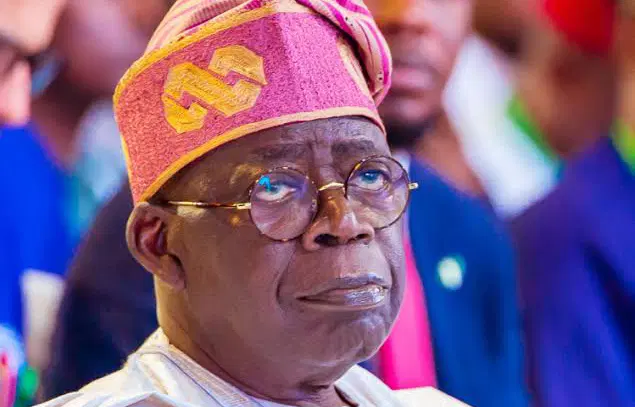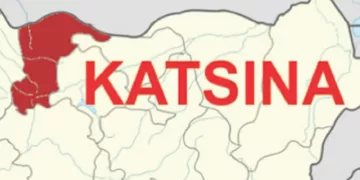As President Bola Tinubu marks his second anniversary in office today, Nigeria stands at a critical juncture. Two years ago, with characteristic boldness, the President declared in his inaugural address that “subsidy is gone,” setting in motion a series of economic reforms that would fundamentally reshape the nation’s fiscal landscape.
Today, as we assess the midpoint of his first term, the question confronting every Nigerian is stark: have these painful adjustments translated into tangible improvements in their daily lives?
The twin removal of fuel subsidy and forex unification has indeed been the defining hallmark of the Tinubu administration. The statistics tell a sobering story: fuel prices have skyrocketed from N197 per litre on May 29, 2023, to between N900-N1,000 today, a staggering 400 per cent increase. Similarly, the naira has tumbled from N500-N700 to the dollar to the current N1,500-N1,600 range, representing a devastating 150 percent devaluation.
The human cost of these reforms is captured in the World Bank’s April 2025 Africa’s Pulse report, which reveals that Nigeria now accounts for 19 per cent of the world’s extremely poor population, the highest globally.
The projection that more Nigerians will be plunged into poverty by 2027 under current policies should serve as a wake-up call to policymakers who seem insulated from the harsh realities facing the masses.
The International Monetary Fund’s recent assessment that Tinubu’s economic policies “are yet to yield tangible benefits for Nigerians” underscores the growing disconnect between policy intentions and lived experiences.
The administration’s supporters point to increased state revenues, with most states recording close to 300 percent increases in allocations, as evidence of the reforms’ success.
However, this narrative rings hollow when citizens at the grassroots level report little improvement in governance delivery. Roads remain deplorable, healthcare systems are still dysfunctional, and basic amenities like electricity and water remain elusive for millions. The fundamental question is: if states are earning more, why are citizens experiencing less?
On the security front, the administration’s record presents a mixed bag of claimed victories and persistent challenges. National Security Adviser Nuhu Ribadu’s assertion that over 13,543 terrorists have been eliminated and 10,000 hostages rescued sounds impressive on paper. The surrender of 124,408 Boko Haram fighters and their families to the de-radicalisation programme also suggests progress in counter-insurgency efforts.
However, these statistics are undermined by the harsh reality of continued daily killings across Plateau, Benue, Borno, and other states. And many have questioned whether the terrorists so ‘de-radicalised’ would not go back to crime if they get an opportunity. There is concern that they may be serving as informants to insurgents.
The seven terror attacks on military bases recorded in 2024 alone, including the devastating assaults on formations in Damboa, Goneri, Wajiroko, and Marte, reveal the limitations of the current security strategy.
When insurgents can repeatedly overrun military positions, seize weapons, and force the replacement of theatre commanders, it suggests that the battle against terrorism remains far from won.
Yet, amidst these challenges, the administration has recorded some notable achievements that deserve recognition. The increase in minimum wage to N70,000 represents a significant improvement for workers, even if inflation has eroded much of its purchasing power. The student loan scheme, though still in its infancy, offers hope for educational access for underprivileged Nigerian youth.
The reduction of Nigeria’s debt burden from $108 billion inherited from the Muhammadu Buhari administration to $94 billion demonstrates fiscal prudence, as does the recent full repayment of the $3.4 billion COVID-19 loan to the IMF, which has restored Nigeria’s creditworthiness.
However, these achievements, while commendable, pale in comparison to the scale of suffering experienced by ordinary Nigerians. The August 2024 nationwide protests against hunger and bad governance were a stark reminder that patient citizens have limits.
The administration’s consistent message – that current hardships are necessary sacrifices for long-term economic recovery – is wearing thin. Moreover, the failure of those in government to tighten their belts the way they encourage other Nigerians points to a governing class that is not on the same page as the masses.
In this newspaper’s considered opinion, two years is sufficient time for citizens to begin experiencing the positive effects of any genuine reform programme. While structural adjustments typically require time to yield results, the absence of intermediate relief measures has left many Nigerians questioning whether the government truly understands their plight.
As we approach the halfway mark of President Tinubu’s first term, several urgent priorities demand immediate attention. First, the administration must implement targeted interventions to cushion the impact of economic reforms on vulnerable populations.
Second, state governments must be held accountable for the substantial increase in their allocations. Citizens deserve to see concrete improvements in service delivery, particularly in healthcare, education, and infrastructure.
Third, the security architecture requires comprehensive overhaul. The current approach of celebrating tactical victories while strategic positions remain vulnerable is unsustainable.
The next two years of President Tinubu’s administration will be defining. Nigerians are not asking for miracles; they seek evidence that their sacrifices are yielding dividends. They want to see reduced prices of goods and services, completion of infrastructure projects, decreased insecurity, and governance that prioritises their welfare over political considerations. These are not unreasonable expectations for citizens of a nation with Nigeria’s potential.
As we mark this second anniversary, the administration must recognise that its ultimate success will not be measured by macroeconomic statistics or international praise but by the simple question: are Nigerians better off today than they were at the inception of this administration? The honest answer to this question should guide the administration’s priorities for the remainder of its term.
`











